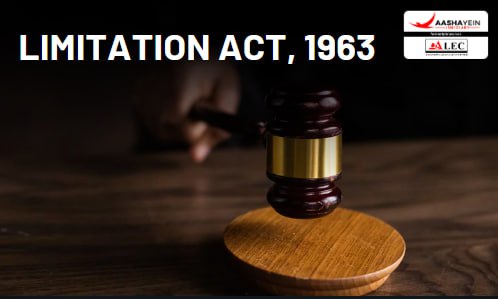Introduction
Section 5 of the Limitation Act, 1963, offers a provision for extending the prescribed period of limitation in specific circumstances, enabling the court to condone delays. This section is applicable exclusively to cases involving appeals and applications.
It explicitly excludes-
- Applications filed under any provisions of Order XXI of the Code of Civil Procedure, 1908, and
- Suits.
The pivotal criterion for invoking this provision is that the appellant or applicant must demonstrate “sufficient cause” for not filing the appeal or application within the stipulated timeframe. Upon being satisfied with the reasons presented, the court has the discretion to hear the case on its merits, thereby ensuring justice is not impeded by procedural delays.
The concept of “sufficient cause” is not explicitly defined within the Limitation Act, 1963, and its interpretation is largely left to the discretion of the courts. This flexibility enables a liberal construction of the term, aiming to further the cause of justice by accommodating genuine and unavoidable delays.
However, it is crucial to note that the mere demonstration of a “sufficient cause” for failing to initiate proceedings within the prescribed time limit does not automatically mandate an extension of time. Courts must exercise their discretion judiciously and assess each case on its own merits. For instance, when a delay occurs in filing an appeal against an acquittal, it can be condoned, provided the appellate court is satisfied that sufficient cause exists for the delay. Importantly, the condonation of delay is not a unilateral decision; it necessitates a balanced consideration involving a hearing of both parties. This approach underscores the judicial system's commitment to fairness while ensuring that procedural timelines do not become an impediment to substantial justice.
You can also read the latest judgment by visiting [Latest Judgment].
For more information, visit [Aashayein Enquiry Section]
Judicial Interpretation
- In Collector, Land Acquisition v. Katiji (1987 SC), the Supreme Court emphasized the importance of condoning delays in filing appeals or applications, asserting that justice should not be sacrificed at the altar of technicalities. The Court recognized that denying condonation could unjustly bar meritorious cases at the threshold, thwarting the cause of justice. On the contrary, allowing condonation merely ensures that the case is decided on its merits after due process.
- In N. Balakrishnan v. M. Krishnamurthy the Court held that even negligence by an advocate can constitute "sufficient cause" for delay, aligning the procedural framework with equitable justice.
Recent Case Laws
- Recently, in Sabarmati Gas Limited v. Shah Alloys Limited (2020), the Apex Court elaborated on “sufficient cause” under Section 5 of the Limitation Act, 1963, defining it as a reason for delay that cannot be attributed to the party's fault. Collectively, these judgments reinforce the judiciary’s stance on balancing procedural discipline with the imperatives of substantive justice.
Conclusion
Section 5 of the Limitation Act, 1963 allows for the extension of time to file an appeal or application if the delay is justified by a “sufficient cause.” This provision is designed to ensure fairness by permitting courts to hear matters on their merits rather than dismissing them on procedural grounds. The determination of “sufficient cause” is left to the court’s discretion, requiring a reasonable and justified explanation for the delay.

